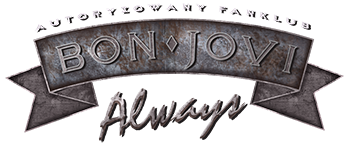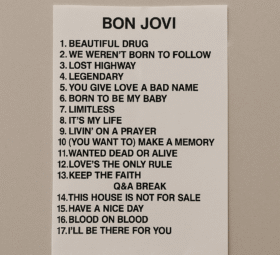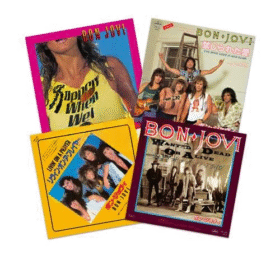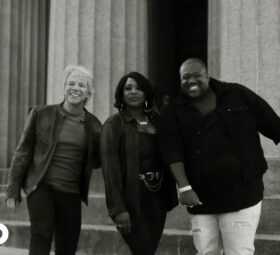

10 kwietnia 2008r. Jon Bon Jovi i Richie Sambora byli gośćmi na specjalnej konferencji „ I Create Music ASCAP EXPO” w Hollywood.
Przebieg konferencji przedstawił Randi Reed.
Richie stwierdził, że proces pisania piosenek przez niego i Jona zawsze pozostał taki sam.
“a couple of guitars or a piano and a rickety old cassette tape recorder.”
Widownia wybychła śmiechem kiedy oboje dodali, że po prostu innego sposobu nie znają.
Zawsze najpierw pojawia się tytuł piosenki. Potem dobierane są akordy, które najlepiej oddają nastrój tytułu. Na końcu pojawiają się słowa.
Said Jon: “It was never about jamming for hours and saying, ‘I like that chord’.”
Richie mówił, iż kiedy pisze, wyobraża sobie tego, kto będzie piosenkę wykonywał i sugeruje tą metodę początkującym twórcom muzycznych tekstów.
“I write for Jon. Think about what artist you’re writing for, and the demographic. See where you’re gonna put it.”
Jon nadmienił, że czasami mają po prostu szczęście i piosenka ‘’spada im z nieba’’.
Jednak nie zawsze jest tak łatwo. Jeśli jest trudno i po prostu nie idzie, trzeba wykazać się cierpliwością i zbyt szybko nie rezygnować.
“{…}never want to be quitters, so even if the song will never make it to the band you try to finish it.{…}”
Jon powiedział także, że jest bardzo ciekaw czy gdzieś istnieje notes z niedokończonymi/niedopracowanymi piosenkami zespołu The Beatles.
” Then he said he’d always wondered if there’s a notebook of unfinished Beatles songs, „because the Beatles were aliens from another planet.”
Kiedy Jon i Richie piszą razem, to tak jakby jeden plus jeden, dawało trzy.
Jon said when he and Richie write together, the strength of their collaboration means “One plus one equals three.”
Im więcej osób im pomaga, tym wspomniane działanie matematyczne może wyglądać zupełnie inaczej. Richie uważa, ze kluczem do dobrej współpracy jest znalezienie osób, które będą skłonne całkowicie zaangażować się w projekt.
„the keys to successful collaborating is to “find the right people who are going to commit” and that it’s about always “working on relationships.””
I jeszcze o atmosferze podczas tworzenia najnowszej płyty w Nashville
“The process of songwriting there is like Chicken Soup for the Soul.”
Co dała współpraca z Johnem Shanksem?
Jon quipped: “A.D.D.! Shanks isn’t here because he’s running around the building.” (Richie added that John Shanks works very quickly, and that his studio set-up is complete and efficient, “like a factory. But a factory in a good way.” Jon said, “Maybe more like a mad scientist’s lab” and Richie agreed.)
Richie i Jon mówili także o znanej genezie powstania piosenki “Bad Medicine”.
Jon and Richie said “Bad Medicine,” which they wrote with Desmond Child, was written with Richie standing “in a nasty pool of water” while the band was shooting a Japanese television commercial.
Jeśli chodzi o współczesny przemysł muzyczny to oboje przyznali, że będąc na początku swojej kariery mieli to szczęście, że zaznaczyli w muzyce swój styl. Obecnie strasznie trudno jest uzyskać stabilną pozycję na rynku muzycznym.
Ludzie wygrywają różne programy muzyczne, tak bardzo popularne w dzisiejszych czasach, ale jeśli nie zaznaczą się mocno na listach przebojów, mogą za dużo nie osiągnąć.
„Jon said: he poor kids now, they come off Idol and if you don’t have a number one single out of the box? That’s it. That’s tough.”
Richie dodał: “Now you don’t get a second chance. The music business is cold…” (and got a huge laugh from the audience because of the face he made, and his timing when he said it)”.
Na temat pozycji muzyki country
“The big corporate entities that own the radio stations have this pigeonhole kind of mentality. And it affected the video era, and what’s happening on television, and then it ultimately takes away personality. What they’re missing there is that country people like rock and roll, and rock and roll people like country music. It’s just the people’s music, and people are affected by a lyric. Take the tag off of it and do the blindfold test and let people hear the music.” This probably got the biggest applause of the afternoon.”
Na spotkaniu poruszono także bardzo ważną kwestię ściągania z internetu piosenek /downloading/.
Jon stwierdził, że tak naprawde trudno znaleźć prawidłową odpowiedź na pytanie w jakim stopniu ten proceder wpływa negatywnie na przemysł muzyczny.
Jeśli ktoś stworzył materiał muzyczny jest zrozumiałe, że będąc z niego dumnym, chciałby się nim podzielić z jak największą liczbą osób, nie ważne w jaki sposób.
„”If I write a song and it gets to the point where it’s on the record and I’m that proud of it, I want to share it with the world. I want you to hear it any which way you can. But do I know if ASCAP has collected royalties for every digital download? I don’t go crazy worrying about that. But I like to see people get the opportunity to get paid for the craft that they’ve worked so hard it, because it’s our job.””
Richie i Jon radzili, aby za szybko sie nie zniechęcać, bo tak naprawdę pisanie piosenek nie jest rzeczą łatwą.
“Try to hold onto [your publishing]. Try not to take the short-term, first kind of deals that are given to struggling writers. And that’s not always easy to do. But it is called the music business for a reason.”
Z dalszej części artykułu dowiemy się co przyczyniło się do tak długiego utrzymywania się Bon Jovi na muzycznym topie.
„”We’ve stayed true to who we were. We didn’t jump on fads or fashions. We’ve been around long enough to have seen the boy band cycle come and go twice…We’ve seen hip hop and grunge come and go. We never pretended to be something we weren’t. You can like it, you can dislike it. But it’s true.””
Całość tekstu w oryginalnej wersji pod pierwszym odnośnikiem poniżej.
Klikając na kolejne linki możemy podziwiać zdjęcia z konferencji.





